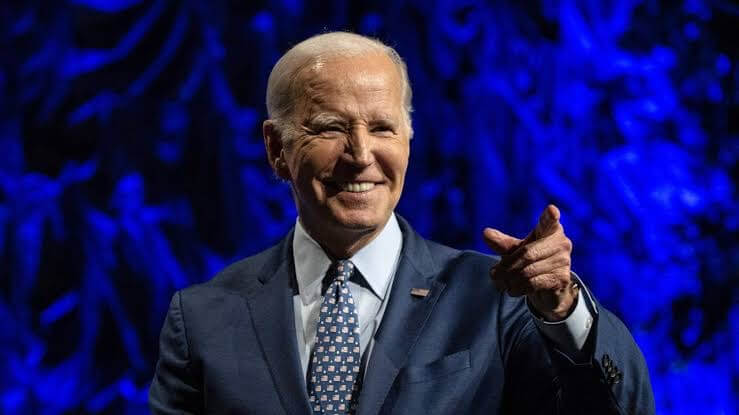US President Joe Biden’s administration recently began secret negotiations with Iran to secure the release of American prisoners held by Tehran, and control the Middle-Eastern country’s increasing nuclear advancement, Wall Street Journal (WSJ) reported citing those acquainted with the matter.
Overview
Biden’s most recent diplomacy effort focuses on easing tensions, which have risen significantly this year due to Iran’s provision of drones to Russia for its war in Ukraine, continued work on uranium enrichment, and the seizure of oil tankers in the Persian Gulf.
Tehran is demanding billions of dollars in Iranian energy revenue trapped overseas by US sanctions in exchange for releasing prisoners and curbs on nuclear operations. Iranian authorities have consistently requested access to $7 billion in Iranian cash held in South Korea and billions of dollars held in Iraq for gas and oil exports in exchange for the potential release of prisoners.
US RESUMES DIPLOMACY WITH IRAN ON PRISONERS AND NUCLEAR ISSUES - SOURCES CITED BY THE WSJ. https://t.co/8X1Ly2z0cP
— Breaking Market News (@financialjuice) June 14, 2023
According to US and Iraqi officials, Washington also authorised the Iraqi government’s payments of $2.7 billion for importing Iranian gas and power as talks between the two sides restarted.
US officials described the money transfer as usual and unrelated to the discussions. Similar funds have been provided, but they were done in euros rather than local currencies this time.
Former South Korean government officials with knowledge of the matter stated that negotiations regarding the transfer of the money for humanitarian purposes are ongoing with Iran and the US.
US Transfers Money to Iran
Senior Iraqi officials stated that the sanctions-related unpaid debt for Iran’s gas and electricity sold to Baghdad was partially settled by the Iraqi payments approved by the Biden Administration since December.
- Iran Nuances has learned that the fate of the recent Iran-US talks could be determined in "a few days" & if things proceed as envisioned, #Iran-US prisoner swap could happen "in the coming days".
— Iran Nuances (@IranNuances) June 14, 2023
- Iran's UN envoy & @Rob_Malley met around 5 times in NY.https://t.co/DbH7K5IEks
Iraqi officials stated that the US insisted the money be paid directly to Iranian creditors in euros to prevent Iran from accessing US dollars and using them for illegal purposes.
According to the officials, the payments, which include nearly $886 million for Turkmenistan, will partially pay off an Iranian debt. Additionally, Baghdad paid the Islamic Development Bank, a Saudi Arabia-based multilateral organisation in which Tehran is the third-largest shareholder, approximately $80 million on Iran’s behalf.
The US sent another $120 million to Saudi Arabia to cover the expenditures of Iranian Muslims making the Hajj pilgrimage to Mecca. Iraq reportedly recently paid for shipments of food and medication from Iran.
A National Security Council official said, “these are humanitarian and similar routine transactions consistent with long-standing US regulations and practise.”
Biden’s “imminent” Iran deal includes sanction relief for oil and unfreezing assets. The Islamic regime will limit uranium enrichment to 60% (90% of whats needed for a nuclear bomb), stop supplying Russia w/ ballistic missiles, and release US prisonershttps://t.co/U5KSe01oI5
— Emily Schrader - אמילי שריידר امیلی شریدر (@emilykschrader) June 15, 2023
Iran’s Increased Nuclear Activity
Iran has increased its nuclear activity since the US reimposed sanctions in 2018, and as the only non-nuclear-weapons state to do so, it has been accumulating 60% enriched uranium for more than two years. According to US sources, Iran already possesses enough 60% material for at least two nuclear bombs and can enrich that material to weapons-grade levels in days.
The International Atomic Energy Agency (IAEA) has previously said that Iran is dangerously close to developing an atomic bomb, given the alarming discovery of near-weapons-grade uranium at an Iranian nuclear site.
The Atomic Energy Organisation of Iran (AEOI) announced in November 2021 that it had started uranium enrichment to a 60% purity level and constructed a new set of cutting-edge IR-6 centrifuges to permit “a massive ramp-up in output.” Iran has reportedly quickly expanded its 60% enriched uranium stockpile to about 70 kilogrammes, as stated by the IAEA.
Western officials are concerned that Iran’s decision to produce fissile material capable of being used in weapons would lead to a diplomatic crisis. Israel has stated that a military strike could result from the level of nuclear production.
US Congress Concerned About Decisions in Iran
The Biden Administration is keen to avoid presenting discussions with Iran at the top of the political agenda as the 2024 presidential campaign approaches. Any official agreement, or even a less formal understanding, which looks far more possible, could necessitate a review in Congress, where Republicans and some Democrats strongly object to a nuclear deal with Iran.
Even an informal agreement with Iran, in which the US makes sanctions concessions in exchange for limited, reversible moves by Iran to reduce its nuclear programme will be criticised, as stated by Israeli PM Benjamin Netanyahu.
While the Biden Administration’s officials claim to enforce US sanctions, Iranian oil shipments continue to increase. Iran is estimated to have shipped as much as 1.55 million barrels per day in May, according to the United Against Nuclear Iran’s tanker tracker.

